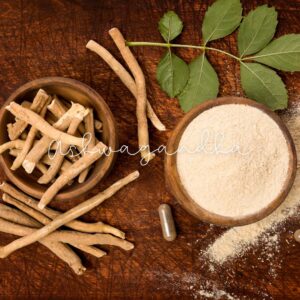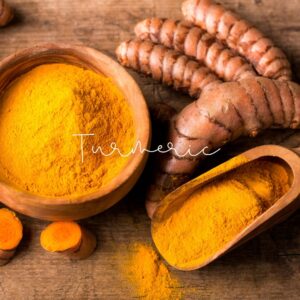Nerve damage, or neuropathy, occurs when nerves in the body are injured or impaired, often leading to symptoms like pain, numbness, and muscle weakness. This condition can result from physical injuries, diabetes, autoimmune diseases, or other health issues.
Fortunately, nature provides a variety of herbs that can support nerve health and alleviate discomfort. In this guide, we’ll explore seven incredible herbs that can help manage nerve damage and promote healing.
What Are the Common Causes of Nerve Damage?
Nerve damage can be caused by various factors, including:
- Diabetes: High blood sugar can damage nerve fibers, leading to diabetic neuropathy.
- Injuries: Physical trauma can impair nerve function.
- Autoimmune Diseases: Conditions like lupus and rheumatoid arthritis can cause inflammation and nerve damage.
- Infections: Viruses like shingles or Lyme disease can harm nerves.
- Toxins: Exposure to heavy metals and certain medications may damage nerves.
By incorporating specific herbs into your routine, you can naturally support nerve repair and reduce symptoms.
7. Chamomile: A Soothing Remedy for Nerve Pain
Chamomile is more than just a calming tea; it’s a powerful herbal remedy for neuropathy.
Why It Works:
Rich in flavonoids like apigenin, which reduce inflammation and alleviate pain.
Provides mild sedative effects, improving sleep and promoting nerve healing.
How to Use It:
Drink chamomile tea daily to soothe inflammation and calm nerve pain.
Use chamomile essential oil for massages to relieve localized discomfort.

Chamomile is more than just a bedtime tea favorite—it’s a potent herbal remedy for calming damaged nerves.
Chamomile has long been revered in herbal medicine for its calming and anti-inflammatory properties, making it an excellent choice for managing neuropathic pain, a common symptom of nerve damage.
The power of chamomile comes from its rich content of flavonoids, particularly apigenin, which is known to reduce inflammation and soothe pain.
By targeting the inflammatory pathways that exacerbate nerve pain, chamomile helps to ease discomfort and promote relaxation in affected areas.
This makes it especially beneficial for those dealing with conditions like peripheral neuropathy, where pain and inflammation are prominent symptoms.
Moreover, chamomile’s mild sedative effects can improve sleep quality, which is often compromised in individuals suffering from nerve pain.
Good sleep is crucial for the body’s healing processes, including nerve repair.
Drinking chamomile tea regularly or using extracts can significantly enhance overall well-being by reducing pain levels and facilitating better sleep patterns.
The therapeutic benefits of chamomile not only alleviate neuropathic pain but also support your body’s natural healing processes.
6. Peppermint: Cooling Relief for Nerve Discomfort
Peppermint’s refreshing aroma and cooling properties make it ideal for nerve-related issues.
Why It Works:
Contains menthol, which activates cold-sensitive receptors, providing a cooling effect.
Reduces inflammation and swelling around damaged nerves.
How to Use It:
Apply diluted peppermint oil to affected areas for immediate relief.
Add a few drops of peppermint oil to a warm bath for relaxation.

Peppermint isn’t just a staple for refreshing breath and holiday treats; it’s also a powerful herbal remedy for soothing nerve disorders.
Peppermint oil, rich in menthol, is particularly effective for topical application, providing a cooling sensation that can significantly alleviate the burning and tingling sensations associated with neuropathy.
Menthol, the main active ingredient in peppermint oil, works by activating the cold-sensitive TRPM8 receptors in the skin.
This action essentially ‘cools’ the area to which the oil is applied, which can distract from the pain by providing a soothing sensation that temporarily overrides discomfort signals being sent to the brain.
This makes peppermint oil a popular choice for those seeking immediate relief from the acute discomforts of nerve damage.
In addition to its cooling effects, peppermint oil has anti-inflammatory properties that help reduce swelling and pain in affected areas.
This can be particularly beneficial in managing conditions that involve chronic pain, such as diabetic neuropathy and other forms of nerve damage, where inflammation is a key aggravator.
Using peppermint oil in massages or in baths can enhance its efficacy as the oil penetrates the skin, reaching the affected nerves to provide relief.
However, it is important to dilute peppermint oil properly with a carrier oil to prevent skin irritation.
5. Ginger: A Potent Anti-Inflammatory for Nerves
Known for its culinary uses, ginger is a powerhouse for reducing nerve inflammation.
Why It Works:
Contains gingerols and shogaols, which block inflammatory pathways.
Provides natural pain relief, similar to NSAIDs but without side effects.
How to Use It:
Drink ginger tea to reduce inflammation.
Use ginger oil in massages or apply topically to painful areas.

Ginger is not just a key ingredient for culinary delights; it’s also a formidable foe against inflammation.
This potent root has been used medicinally for centuries, primarily for its anti-inflammatory properties, which make it an excellent choice for those suffering from neuropathic pain associated with nerve damage.
Ginger contains gingerols and shogaols, active compounds that have been shown to have significant anti-inflammatory and antioxidant effects.
These compounds work by inhibiting the production of pro-inflammatory cytokines and chemokines at the cellular level, which can help reduce swelling and pain throughout the body.
This action makes ginger particularly effective in treating inflammatory conditions like arthritis and, in the context of neuropathy, reducing the inflammation around damaged nerves.
In addition to easing inflammation, ginger has analgesic properties similar to those of non-steroidal anti-inflammatory drugs (NSAIDs), but without the typical side effects associated with these medications.
This makes ginger a safer alternative for long-term use, especially for those dealing with chronic pain conditions that affect the nerves, such as diabetic neuropathy.
Incorporating ginger into your diet can be as simple as adding it to your tea, smoothies, or meals.
For more targeted relief, ginger supplements are available, and topical gels containing ginger extract can be applied directly to areas of pain.
Regular use of ginger, whether internally or externally, can help mitigate the symptoms of nerve damage and improve overall nerve function.
4. Ashwagandha: An Adaptogen for Stress and Nerve Repair
Ashwagandha is a staple in Ayurvedic medicine, known for its ability to reduce stress and support nerve health.
Why It Works:
Stimulates nerve regeneration by promoting the growth of axons and dendrites.
Reduces inflammation and improves communication between nerve cells.
How to Use It:
Take ashwagandha supplements in capsule or powder form.
Incorporate ashwagandha tea into your daily routine to enhance nerve repair.

Ashwagandha is a revered herb in Ayurvedic medicine, known for its remarkable adaptogenic properties.
Adaptogens are natural substances that help the body adapt to stress and exert a normalizing effect upon bodily processes.
Ashwagandha stands out for its ability to enhance the body’s resilience in dealing with both physical and emotional stress, which can be particularly beneficial for those suffering from nerve damage.
Beyond its stress-reducing capabilities, ashwagandha promotes the repair of nerve cells, which is crucial in the treatment of neuropathic conditions.
It helps regenerate the axons and dendrites of nerve cells—key components in the functioning of the nervous system—improving communication between nerve cells and helping to restore their normal function after damage.
This regenerative effect not only alleviates symptoms of nerve damage such as pain and numbness but also enhances overall neurological health.
Additionally, ashwagandha is known for its anti-inflammatory effects, which play a significant role in its ability to alleviate pain associated with nerve damage.
By reducing inflammation around damaged nerves, it can decrease discomfort and enhance mobility, making daily activities less challenging for those affected by neuropathy.
Ashwagandha supplements are widely available in capsule, powder, or tincture form.
Regular use of this herb can significantly contribute to nerve repair and overall well-being, making it a valuable addition to a nerve care regimen.
3. Ginkgo Biloba: Enhancing Circulation to Heal Nerves
Ginkgo Biloba is famous for its ability to boost blood flow, which is critical for nerve repair.
Why It Works:
Improves oxygen and nutrient delivery to damaged nerves.
Protects nerve cells from oxidative stress with powerful antioxidants.
How to Use It:
Take Ginkgo Biloba supplements daily.
Consult with a healthcare provider to determine the right dosage for your needs.

Ginkgo Biloba is a venerable herb with a long history of use in traditional Chinese medicine, primarily recognized for its ability to enhance circulation.
This circulatory boost is crucial for anyone suffering from nerve damage as it facilitates the flow of oxygen and nutrients to nerve cells, which are vital for their repair and health.
The increased blood flow achieved through Ginkgo Biloba supplementation can significantly speed up the recovery processes of damaged nerves.
This is particularly beneficial in conditions such as neuropathy, where poor circulation can exacerbate symptoms and slow healing.
For diabetic patients, who often suffer from complications related to nerve damage and circulatory issues, Ginkgo Biloba can be especially helpful in alleviating these symptoms by enhancing blood flow and reducing the risk of further nerve damage.
Furthermore, Ginkgo Biloba is known for its neuroprotective properties. It contains potent antioxidants that protect nerve cells from oxidative stress and damage, a common issue in neuropathic conditions.
By safeguarding neurons and other cells from oxidative harm, Ginkgo Biloba not only supports nerve health but also helps improve nerve function over time.
Ginkgo Biloba supplements are available in various forms, such as tablets, capsules, and liquid extracts.
Regular intake of this herb, under the guidance of a healthcare provider, can help enhance circulation, protect nerve cells, and accelerate the healing of nerve damage, making it a top choice for those looking to support their nerve health naturally.
2. St. John’s Wort: Alleviating Neuropathic Pain Naturally
Best known for treating depression, St. John’s Wort is also effective for nerve pain.
Why It Works:
Contains hypericin and hyperforin, which promote nerve repair and reduce pain.
Modulates neurotransmitter activity to improve mood and decrease discomfort.
How to Use It:
Drink St. John’s Wort tea or take it as a capsule.
Speak with a healthcare provider before use, as it can interact with medications.

St. John’s Wort is not only a popular herbal remedy for depression but also highly valued for its neuroprotective properties.
This herb has a rich history in herbal medicine for treating various nervous system disorders, and its benefits extend significantly to the realm of nerve health, especially in treating neuropathic pain, which can be debilitating.
St. John’s Wort works by promoting nerve regeneration.
It contains active compounds such as hypericin and hyperforin, which are thought to contribute to its ability to support nerve tissue growth and health.
These compounds help stimulate the repair of damaged nerve cells and enhance their function, making St. John’s Wort a powerful ally against neuropathy.
Moreover, St. John’s Wort is particularly noted for its effectiveness in alleviating neuropathic pain.
It is believed to exert its pain-relieving effects through its anti-inflammatory properties and its ability to modulate neurotransmitter activity, including serotonin and dopamine, which play a key role in pain perception.
By adjusting the levels of these neurotransmitters, St. John’s Wort helps reduce the sensation of pain and improves overall neurological comfort.
St. John’s Wort can be taken in the form of capsules, teas, or tinctures.
However, it’s always important to consult with a healthcare provider before starting any new treatment, as St. John’s Wort can interact with a variety of medications and may not be suitable for everyone.
1. Turmeric: The Gold Standard for Nerve Health
Turmeric’s active compound, curcumin, is a powerful anti-inflammatory and antioxidant that makes it the top herb for nerve damage.
Why It Works:
Reduces inflammation that exacerbates nerve pain.
Protects nerves from oxidative damage and promotes regeneration.
How to Use It:
Add turmeric to meals or smoothies for a flavorful boost.
Take curcumin supplements for concentrated benefits, paired with black pepper to enhance absorption.

Turmeric is not just a staple in culinary creations but also a super herb in the realm of medicinal herbs, particularly for combating inflammation and nerve pain.
The magic ingredient in turmeric is curcumin, a compound that has received considerable attention for its potent anti-inflammatory and pain-relieving properties.
Curcumin works by inhibiting key enzymes and proteins that propagate inflammation throughout the body.
This action is crucial in managing conditions like neuropathy, where inflammation can exacerbate nerve pain and lead to further nerve damage.
By reducing inflammation, curcumin helps to alleviate the painful symptoms associated with nerve damage, providing much-needed relief.
Moreover, curcumin has been shown to boost the body’s natural antioxidant capacity.
This means it not only combats inflammation but also helps to repair damage at the cellular level, including within the nervous system.
Its antioxidant action protects nerve cells from oxidative stress and promotes a healthier environment for nerve regeneration and function.
Incorporating turmeric into your diet can be as simple as adding it to your meals as a spice, enjoying it in teas, or taking it as a supplement in capsule form for a more concentrated dose.
For those dealing with nerve damage, regular inclusion of turmeric can significantly enhance nerve function and decrease pain, making it a top recommendation for natural nerve health support.
How to Incorporate These Herbs into Your Routine
Start Small: Introduce one herb at a time to observe its effects.
Combine Approaches: Use a mix of teas, supplements, and topical applications for comprehensive support.
Consult a Professional: Speak with a healthcare provider to ensure these herbs are safe for your specific condition.
Natural Relief for Nerve Damage
These 7 herbs—chamomile, peppermint, ginger, ashwagandha, Ginkgo Biloba, St. John’s Wort, and turmeric—offer powerful, natural ways to manage nerve damage. By incorporating them into your lifestyle, you can reduce pain, enhance nerve repair, and improve overall well-being.
What’s your favorite herb for nerve health? Share your experiences in the comments below!
Stay healthy and take care!